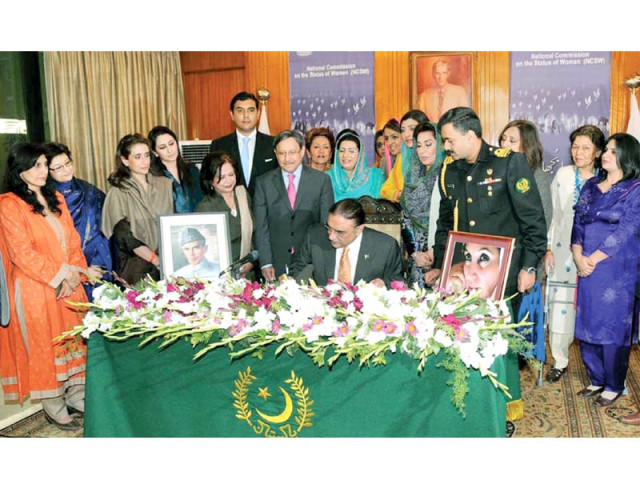A welcome law
Only time will tell if new powers granted to the commission have a genuine impact on the lives of women in Pakistan.

The government, with the prime minister’s adviser on human rights having proposed the bill deserves credit for making the most important entity on women and their rights in the country a little stronger. The former head of the Commission, Justice Majida Rizvi had attempted to gain autonomy for the organisation during the Musharraf era, but failed. The pressing need to determine the status of the NCSW came up after the passing of the Eighteenth Amendment Bill, with the ministry for women’s affairs devolving to the provinces. To remove the uncertainty over the situation of the women’s commissions center Raza Rabbani had moved a bill suggesting it be made autonomous.
Now that this has happened we will need to see how effective the role it can play is. This has been defined as suggesting means to improve the situation of women, identifying discriminatory legislation creating awareness and taking steps to remove other hurdles that stand in the way of the progress of women or act in any way at all to deny them equal rights as citizens. The key issue here as in the past is if the proposals put forward by the NCSW will be implemented. Many of the laws that it has noted act against the welfare of women, remain on the statutes books, despite the proposals made by legal expert working with the NCSW. Only time will tell if this situation is to change following the latest legislation and if the new powers granted to the commission can have a genuine impact on the lives of women in Pakistan.
Published in The Express Tribune, March 12th, 2012.















COMMENTS
Comments are moderated and generally will be posted if they are on-topic and not abusive.
For more information, please see our Comments FAQ